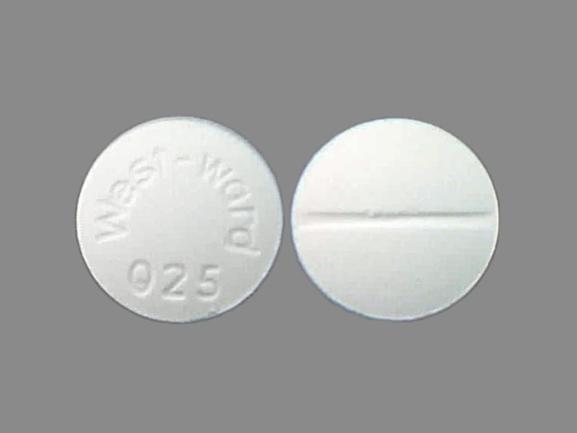Aminophylline Side Effects
Medically reviewed by Drugs.com. Last updated on Mar 13, 2025.
Applies to aminophylline: intravenous solution.
Precautions
It is very important that your doctor check the progress of you or your child while you receive this medicine. Blood tests may be needed to check for unwanted effects.
A change in your usual behavior or physical well-being may affect the way this medicine works in your body. Tell your doctor if you or your child:
- Have had a fever of 102 degrees F or higher for at least 24 hours or more.
- Have started or stopped smoking tobacco or marijuana in the last few weeks.
- Have started or stopped taking another medicine in the last few weeks.
- Have changed your diet in the last few weeks.
Check with your doctor right away if you or your child have the following symptoms after using this medicine: nausea or vomiting that continues, headaches, trouble with sleeping, seizures, or irregular heartbeats.
Before you have any medical tests, tell the medical doctor in charge that you or your child are using this medicine. The results of some tests may be affected by this medicine.
This medicine may add to the central nervous system (CNS) stimulant effects of caffeine-containing foods or beverages such as chocolate, cocoa, tea, coffee, and cola drinks. Avoid eating or drinking large amounts of these foods or beverages while using this medicine. If you have questions about this, check with your doctor.
Do not take other medicines unless they have been discussed with your doctor. This includes prescription or nonprescription (over-the-counter [OTC]) medicines for appetite control, asthma, colds, cough, hay fever, or sinus problems, and herbal or vitamin supplements.
Serious side effects of aminophylline
Along with its needed effects, aminophylline may cause some unwanted effects. Although not all of these side effects may occur, if they do occur they may need medical attention.
Check with your doctor or nurse immediately if any of the following side effects occur while taking aminophylline:
Incidence not known
- chest pain or discomfort
- dizziness
- fainting
- fast, slow, or irregular heartbeat
- increase in urine volume
- lightheadedness
- persistent vomiting
- pounding or rapid pulse
- seizures
- shakiness
Get emergency help immediately if any of the following symptoms of overdose occur while taking aminophylline:
Symptoms of overdose
- abdominal or stomach pain
- blurred vision
- confusion
- confusion about identity, place, and time
- dark-colored urine
- decrease in frequency of urination
- decreased urine
- diarrhea
- difficulty in passing urine (dribbling)
- dizziness, faintness, or lightheadedness when getting up suddenly from a lying or sitting position
- dry mouth
- fast, pounding, or irregular heartbeat or pulse
- fever
- increased thirst
- irregular heartbeat
- loss of appetite
- mood changes
- muscle cramps or spasms
- muscle pain or stiffness
- nausea or vomiting
- nervousness
- numbness or tingling in the hands, feet, or lips
- pain or discomfort in the arms, jaw, back, or neck
- painful urination
- shakiness in the legs, arms, hands, or feet
- shortness of breath
- sweating
- unusual tiredness or weakness
- vomiting of blood or material that looks like coffee grounds
Other side effects of aminophylline
Some side effects of aminophylline may occur that usually do not need medical attention. These side effects may go away during treatment as your body adjusts to the medicine. Also, your health care professional may be able to tell you about ways to prevent or reduce some of these side effects.
Check with your health care professional if any of the following side effects continue or are bothersome or if you have any questions about them:
Incidence not known
- headache
- irritability
- restlessness
- sleeplessness
- trouble sleeping
- unable to sleep
See also:
For healthcare professionals
Applies to aminophylline: compounding powder, intravenous solution, oral solution, oral tablet, oral tablet extended release, rectal suppository.
General adverse events
The most common adverse events with peak serum theophylline levels under 20 mcg/mL are transient caffeine-like events such as nausea, vomiting, headache, and insomnia. When serum theophylline exceeds 20 mcg/mL a wide range of adverse events may occur, including persistent vomiting, cardiac arrhythmias, and potentially lethal intractable seizures.[Ref]
Gastrointestinal
- Frequency not reported: Nausea, vomiting, persistent vomiting, diarrhea, abdominal pain, hematemesis[Ref]
Cardiovascular
- Frequency not reported: Multifocal atrial tachycardia and flutter (in patients with hypoxia secondary to COPD), sinus tachycardia, other supraventricular tachycardias, ventricular premature beats, atrial fibrillation or flutter, ventricular arrhythmias with hemodynamic instability, hypotension/shock[Ref]
Nervous system
- Frequency not reported: Headache, seizures[Ref]
Hypersensitivity
- Rare (less than 0.1%): Severe allergic reactions of the skin (including exfoliative dermatitis)[Ref]
Metabolic
- Frequency not reported: Hypokalemia, hyperglycemia, acid/base disturbance[Ref]
Musculoskeletal
- Frequency not reported: Fine skeletal muscle tremors, rhabdomyolysis[Ref]
Psychiatric
- Frequency not reported: Insomnia, irritability, restlessness, nervousness, disorientation[Ref]
Genitourinary
- Frequency not reported: Transient diuresis[Ref]
Other
- Frequency not reported: Tremors, death[Ref]
Dermatologic
- Frequency not reported: Contact dermatitis[Ref]
References
1. (2001) "Product Information. Theo-Dur (theophylline)." Schering Corporation
2. (2018) "Product Information. Aminophylline (aminophylline)." Hospira Inc
More about aminophylline
- Check interactions
- Compare alternatives
- Pricing & coupons
- Reviews (1)
- Drug images
- Dosage information
- During pregnancy
- Drug class: methylxanthines
- Breastfeeding
- En español
Patient resources
- Aminophylline injection drug information
- Aminophylline (Intravenous) (Advanced Reading)
- Aminophylline (Oral) (Advanced Reading)
Other brands
Professional resources
- Aminophylline Injection prescribing information
- Aminophylline Oral Solution (FDA)
- Aminophylline Tablets (FDA)
Related treatment guides
Further information
Aminophylline side effects can vary depending on the individual. Always consult your healthcare provider to ensure the information displayed on this page applies to your personal circumstances.
Note: Medication side effects may be underreported. If you are experiencing side effects that are not listed, submit a report to the FDA by following this guide.

